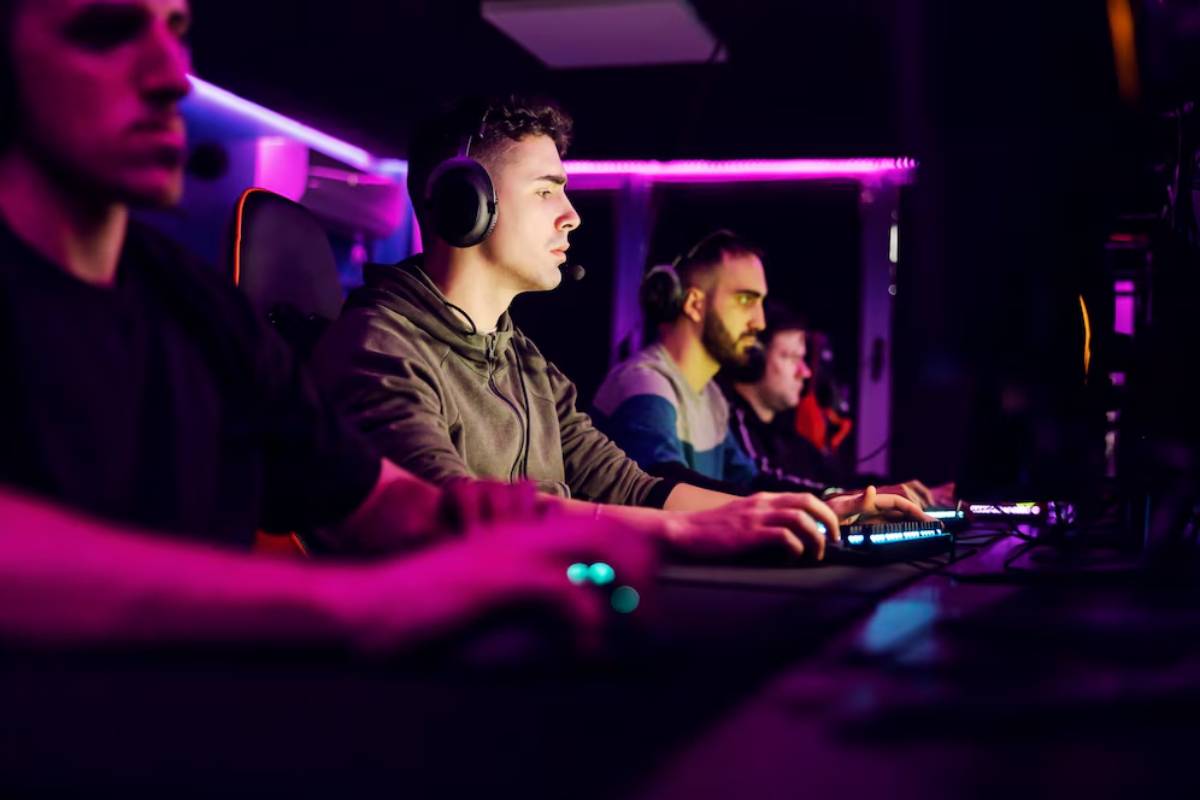
AI in Anti-Cheat: How It Helps in Competitive Play
Gaming has changed a lot over the years. FPS games lead the way in excitement and innovation. However, as these games grow in popularity, so too does the challenge of maintaining fair play. Enter AI-powered anti-cheat systems, revolutionising the way competitive play is protected. In this blog, we explore FPS anti-cheat AI. These tools are changing esports and competitive gaming. No matter if you’re a casual gamer or a pro, knowing about these smart protection systems is key. They help us appreciate the integrity of the games we love.
The Importance of AI in FPS Anti-Cheat Systems
FPS games are a battleground. This fight happens in virtual arenas and against cheats and hacks. Cheating hurts competitive play. It skews results and frustrates honest players. AI provides a smart solution that adapts to new cheating methods.

Why Cheating is a Threat to Competitive Play
Cheating in FPS games occurs in different ways. Aimbots give players perfect aim, while wallhacks let them see through walls. These exploits disrupt the gaming experience and erode trust in the community. Players spend a lot of time and effort improving their skills, and when cheats are common, they lose the value of their hard-earned achievements.
In professional esports, keeping the competition fair is crucial. Sponsorships and prizes are on the line, so integrity matters most. Cheating can cause scandals, fewer viewers, and damage to the game developers’ reputation.
How AI Enhances Game Security Tools
AI-powered anti-cheat systems are designed to detect and prevent cheating in real time. AI systems learn and adapt to new cheating techniques, which is different from traditional methods, which use pre-set rules and manual detection. They analyse patterns of behaviour, flagging anomalies that suggest foul play. This proactive approach not only catches existing cheats but anticipates future ones.
For instance, machine learning algorithms help these systems spot a skilled player and a cheater with great accuracy. They look at reaction times, movement patterns, and accuracy rates, which helps them build a clear profile of what real play looks like.
Key Benefits of AI in FPS Anti-Cheat Systems
AI integration in anti-cheat systems brings many benefits. It improves the gaming experience and supports fair play in competitions.
Real-Time Detection and Response
A major benefit of AI in anti-cheat systems is its real-time detection and response to cheating. AI can watch gameplay all the time, helping it spot suspicious activities right away. Then, it can step in immediately. This quick move stops cheaters from affecting the game and ensures honest players have a fair match.
Continuous Learning and Adaptation
AI systems are not static; they continuously learn and adapt to new cheating methods. As cheaters develop more sophisticated techniques, AI evolves to counteract them. This dynamic nature keeps anti-cheat systems effective. It offers lasting protection for competitive play.
Enhanced Player Experience
AI-powered anti-cheat systems improve the player experience by reducing cheating. Gamers can work on their skills and enjoy the game without dealing with the frustration of cheaters. This improved experience fosters a more positive gaming community and encourages player retention.

Trust and Fairness in Esports
Trust and fairness are crucial for esports organisations and professional players. AI anti-cheat systems keep competitive events fair. They ensure skill wins, not unfair advantages. Trust is key to attracting sponsors, viewers, and fresh talent to esports.
Additional Expert Tips & Common Mistakes to Avoid
AI-powered anti-cheat systems have many benefits. However, there are best practices to follow and common mistakes to avoid.
Best Practices for Implementing AI Anti-Cheat Systems
- Transparency: Communicating how anti-cheat systems work can build trust within the gaming community. Players who know how they work and why they matter are more likely to support these measures.
- Regular Updates: Continuous updates are essential to keeping anti-cheat systems effective. Game developers should focus on regular updates, which help tackle new cheating methods and enhance detection skills.
- Collaboration with Players: Working with players can give useful insights into new cheating trends. Encouraging players to report suspicious activities helps enhance the effectiveness of anti-cheat systems.
Common Mistakes and Misconceptions
- Over-Reliance on AI: While AI is a powerful tool, it should not be the sole line of defence against cheating. Combining AI with other security steps, like manual checks and community reports, strengthens the anti-cheat system.
- Ignoring False Positives: AI systems can sometimes flag legitimate players as cheaters. We must address these false positives quickly. This will help prevent unfair bans and keep player trust intact.
- Underestimating Cheaters: Cheaters are constantly developing new methods to bypass detection. Underestimating their capabilities can lead to vulnerabilities in anti-cheat systems. Staying vigilant and proactive is essential for adequate protection.
Advanced Insights and Expert Recommendations
Experts offer several recommendations to enhance the effectiveness of AI anti-cheat systems further.
Leveraging Data Analytics
Data analytics can play a crucial role in improving anti-cheat systems. Developers can spot cheating by analysing large amounts of gameplay data. They look for patterns and trends that reveal dishonest behaviour. This data-driven approach allows for more accurate detection and prevention of cheating.

Collaborating with Other Developers
Collaboration between game developers can lead to more effective anti-cheat solutions. Sharing tips and strategies can build a strong front against cheaters. This helps everyone in the gaming industry. Developers can learn from each other. By sharing successes and challenges, they can improve their anti-cheat systems.
Investing in Research and Development
Continuous research and development are essential to staying ahead of cheaters. Investing in new technologies can help developers build better anti-cheat systems. This commitment to innovation is crucial for maintaining the integrity of competitive play.
Conclusion: Ensuring Fair Play in the Future of Gaming
Fair play is crucial as gaming evolves. AI anti-cheat systems provide a strong answer to cheating problems. They keep competitive play a real test of skill and strategy. By embracing and improving these technologies, game developers can create a more enjoyable and trustworthy gaming experience for all players.
Whether you’re a casual gamer or a pro esports player, AI anti-cheat systems matter. Supporting these systems helps keep gaming fair. Let’s build a gaming community that values fairness, integrity, and competition!
What are your thoughts on AI in anti-cheat systems? Have you encountered any cheating experiences in your gaming journey?


